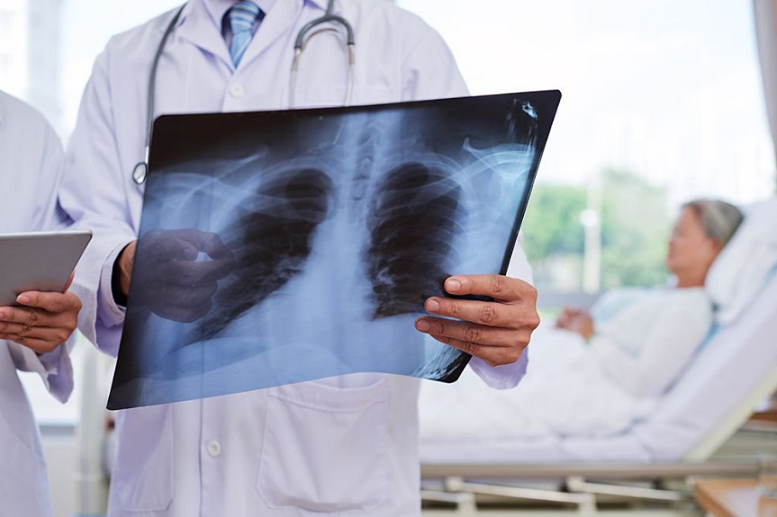It is not always so clear-cut to identify the exact cause of a case of pneumonia. In diagnosing pneumonia, your doctor may examine your phlegm under a microscope or have a urine sample tested to pinpoint the cause. In addition to discussing your symptoms in-depth, during your visit to your doctor, they will likely ask you questions regarding your travel history, immunizations, the drugs you are on, whether you have been around any individuals with any health conditions, and even about pets and animals you have been around.
The pneumonia diagnosis process does not only entail identifying a cause but also serves as a way to spot other underlying issues and prevent further complications.
Lung Abscess
This is one of the complications associated with pneumonia. A lung abscess is a pus-filled sore in the lung. Most of the time, going on antibiotics is enough to address the issue, but in some cases, your physician may recommend a procedure to remove it. Your doctor may order a CT scan to get a better view of the abscess, which involves compiling numerous X-rays to put together a more expansive image of the chest.
Bacteremia
Another complication is known as bacteremia which occurs when germs in the lungs enter your bloodstream. This complication is more common among individuals with other health conditions such as hypertension or liver disease. It can also reach to other tissues and organs, leading them to stop functioning. Usually, a blood test can detect whether you have bacteremia. The treatment involves the delivery of potent antibiotics intravenously.
Shortness of Breath
If you are over a certain age and also suffer from other health conditions, in severe cases of pneumonia, your lungs may stop functioning properly. In which case, your bloodstream may get deprived of oxygen on which most of your organs including your brain depend. By using a blood test or a pulse oximeter test, your physician may measure your blood oxygen levels. If your blood is low on oxygen, you may require a breathing mask or ventilator to facilitate your breathing until your lungs recover.
Pleural Effusion
Also known as water in the lungs, pneumonia can also result in a fluid buildup surrounding the tissue of the lungs. If this buildup becomes infected or causes breathing difficulties, your physician might have to insert a tube in your chest or perform an operation to remove it.
Is Pneumonia Preventable?
Vaccinations can defend your body against some types of pneumonia, but your personal hygiene habits go a long way in preventing pneumonia as well. Washing your hands and face thoroughly with a soap regularly and using a hand sanitizer during cold/flu seasons are two important measures. Having a healthy, balanced diet and regular exercise are also two essential steps to strengthen your immune system. Finally, if you are a smoker, try to quit because smoking can have a negative impact on your lungs’ ability to fend off pathogens and also cause more complications upon catching pneumonia.
Featured Image: Twitter



